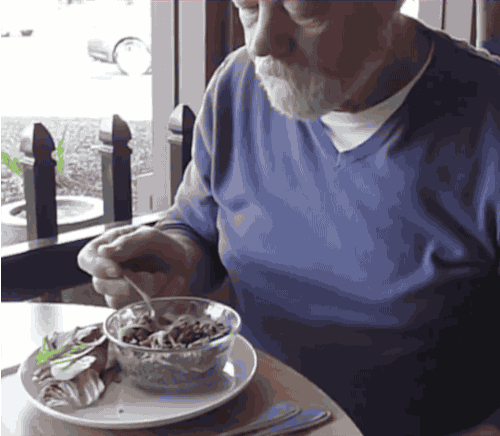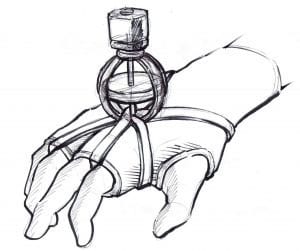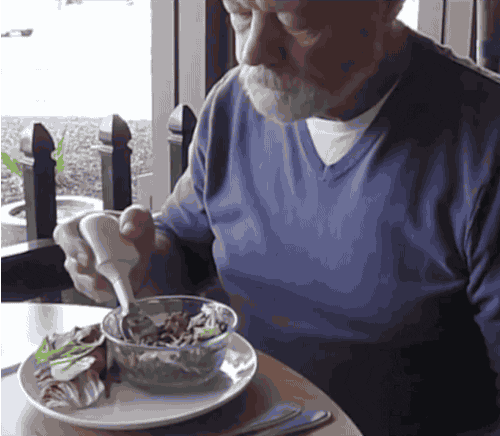At 103 years old, you might expect your hands to shake a little, or maybe a lot. But what if you had an eagle-eyed medical student helping you with your meal? Suddenly, the issue isn’t the 103 years you’ve lived on the planet.
The real issue is how to stop your hands from shaking enough to let you eat in peace rather than in pieces.

This was the case when the founder of GyroGear Faii Ong, was assisting a patient. The result is the beta test glove, called GyroGlove, which the London-based start-up company is currently testing for people living with Parkinson’s disease. It has disks that rotate on top of the hand in gyroscopic circles, making motion feel slow, like pushing through glue. This could be enough to remedy fine tremors.

GyroGear’s goal is to see a 70% reduction in tremors in patients wearing the GyroGlove. It might be worth a try.
Because it’s not a medication, there have been no reported side effects.
Another company, Liftware, is also developing products to help people with hand tremors. They offer a utensil with a stabilizing handle and attachable spoon and fork heads.

So, even if you’re a few years away from turning 103, know that there are products in development that can help if you suffer from shaky hands.
If you have Parkinson’s disease and would like to test the glove, GyroGear wants to hear from you. Click here for more information. If you’d like to try Liftware in person, contact them for the name of a clinician near you. Be sure to share your results with PatientWorthy in the comment section below!


